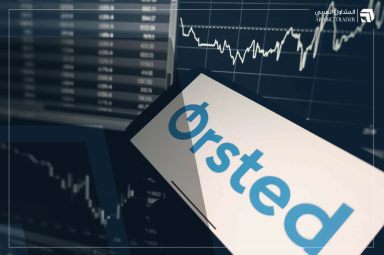Commodity Trading Advisors: Who They Are, What They Do & Why It Matters More Than Ever
If you've ever dipped your toes into the world of investing or alternative assets, chances are you've heard terms like hedge fund, portfolio manager, or trading strategist. But one term that’s often overlooked yet incredibly vital in today’s complex financial landscape is the Commodity Trading Advisor, or CTA.
So, what is a CTA? Who uses them? And why should you care, especially in an age where financial markets are as dynamic and unpredictable as ever? Let’s break it all down.
First, What is a Trading Advisor?
A trading advisor is a professional or organization that provides guidance or manages assets related to trading strategies. They help clients make smart moves in financial markets by analyzing data, using models, or offering strategies to reduce risks and maximize returns.
They can work across different asset classes like stocks, bonds, options and of course, commodities. But when their specialty is specifically in commodities and futures trading, they often carry a specific title: Commodity Trading Advisor.
What is a Commodity Trading Advisor (CTA)?
A Commodity Trading Advisor (CTA) is a person or firm registered with the Commodity Futures Trading Commission (CFTC) and typically also a member of the National Futures Association (NFA). They provide individualized advice to clients on trading futures contracts, options on futures, and certain foreign exchange contracts.
But here’s the twist: many CTAs go beyond giving advice. They often directly manage client assets using automated systems or discretionary strategies. Think of them as the algorithm meets analyst pros behind trend-following strategies, quantitative models, and risk-managed futures portfolios.
> CTAs are essentially professional money managers who specialize in the commodities and futures markets.
What Do CTAs Trade?
CTAs operate in the managed futures space, trading instruments like:
- Agricultural commodities (wheat, soybeans, coffee)
- Energy (oil, natural gas)
- Precious metals (gold, silver)
- Currencies
- Stock indices (via futures)
- Interest rate futures
They often deploy systematic strategies, using algorithms and historical data to identify opportunities. This can make them more objective than traditional fund managers, as emotion is largely removed from decision-making.
Key Benefits of Working with a CTA
So why would anyone want to work with a CTA? Great question. Here are the major advantages:
1. Diversification
CTAs typically trade across multiple asset classes and markets, offering diversification that you can’t easily get from stocks and bonds alone.
2. Risk Management
Many CTAs use sophisticated risk controls and trend-following strategies to minimize drawdowns and limit losses , great for navigating turbulent markets.
3. Potential for Non-Correlated Returns
CTAs often perform well in market conditions where traditional assets don’t. For instance, some CTAs thrived during the 2008 financial crisis and the 2020 pandemic crash.
4. Professional Expertise
You're not guessing your way through the commodities market , you're leveraging the skills of seasoned professionals who live and breathe futures markets.
Why CTAs Are Important in Today’s World
In today’s uncertain economic environment with inflation concerns, geopolitical tensions, volatile equity markets, and rapid interest rate changes investors are increasingly seeking alternative investments.
CTAs provide:
- A hedge against inflation
- Exposure to global macroeconomic trends
- Access to commodities, which are critical for balancing portfolios
- Strategies that can thrive in bear markets as well as bull runs
As wealth becomes more data-driven, the role of CTAs continues to rise. Their strategies are often powered by machine learning, backtesting, and real-time analytics, making them more precise than ever before.
Who Practices as a CTA?
To become a CTA, one must register with the CFTC and become a member of the NFA. The space includes:
- Independent professionals who manage small portfolios
- Large institutional firms offering CTA programs
- Quantitative analysts and data scientists
- Hedge funds running systematic or macro strategies
- Proprietary trading firms specializing in futures
Some of the most notable CTAs in the industry include:
- Winton Group
- Man AHL
- Campbell & Company
- Aspect Capital
You can explore a list of registered CTAs on the National Futures Association website.
Is CTA Investment Right for You?
If you are:
- An individual investor seeking diversification
- A financial advisor building portfolios with non-correlated assets
- A high net worth individual or family office
- A pension fund looking for risk-adjusted alpha
…then CTA-managed futures could be worth considering. However, they’re not for everyone. They often come with performance-based fees, minimum investment requirements, and volatility. So due diligence is key.
Final Thoughts: A Modern Approach to a Traditional Market
In a world where market disruptions are more frequent and traditional portfolios are under pressure, Commodity Trading Advisors offer a modern solution rooted in decades of market expertise. They help investors step beyond the boundaries of stocks and bonds into a realm that’s data driven, globally diversified, and when done well profitable in both up and down markets.
Whether you're a curious individual or a seasoned investor, exploring what CTAs offer might just be the hedge your portfolio needs.
If you're interested in learning more, check out:
- NFA’s Guide to Managed Futures
- Barclay Hedge CTA Database
- CFTC CTA Registration Info
Want help navigating the world of CTAs or setting up your own investment strategy? Drop a comment or reach out
we’re happy to guide you.





